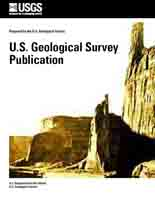
Reproductive physiology of Missouri River gravid pallid sturgeon and shovelnose sturgeon during the 2005 and 2006 spawning seasons: Chapter C in Factors affecting the reproduction, recruitment, habitat, and population dynamics of pallid sturgeon and shovelnose sturgeon in the Missouri River
Links
- Larger Work: This publication is Chapter C of Factors affecting the reproduction, recruitment, habitat, and population dynamics of pallid sturgeon and shovelnose sturgeon in the Missouri River
- Download citation as: RIS | Dublin Core
Abstract
In a natural, unaltered river, the location and timing of sturgeon spawning will be dictated by the prevailing environmental conditions to which the sturgeon have adapted. A goal of the Comprehensive Sturgeon Research Program (CSRP; see chap. A) at the U.S. Geological Survey Columbia Environmental Research Center is to identify where, when, and under what conditions shovelnose sturgeon (Scaphirhynchus platorynchus) and pallid sturgeon (S. albus) spawn in the altered Missouri River so that those conditions necessary for spawning success can be defined. One approach to achieving this goal is to exploit what is known about fish reproductive physiology to develop and apply a suite of diagnostic indicators of readiness to spawn. In 2005 and 2006, gravid shovelnose sturgeon and a limited number of pallid sturgeon were fitted with transmitters and tracked on their spawning migration. A suite of physiological indicators of reproductive state such as reproductive hormones and oocyte development were measured. These same measurements were made on tissues collected from additional fish, presumably migrating to spawn, that were not tagged or tracked. The data presented here indicating the sturgeons’ readiness to spawn are to be evaluated together with their behavior and the environmental conditions. The U.S. Army Corps of Engineers (ACOE) Sturgeon Response to Flow Modification (SRFM; see chap. A) study, initiated in 2006, provides additional opportunities to experimentally evaluate the sturgeon reproductive response indicators relative to changes in flow. In this chapter, we report progress made on identifying and developing the physiological indicators and summarize 2 years’ worth of indicator data collected thus far.
Suggested Citation
Papoulias, D.M., Annis, M., Delonay, A.J., Tillitt, D.E., 2007, Reproductive physiology of Missouri River gravid pallid sturgeon and shovelnose sturgeon during the 2005 and 2006 spawning seasons: Chapter C in Factors affecting the reproduction, recruitment, habitat, and population dynamics of pallid sturgeon and shovelnose sturgeon in the Missouri River: U.S. Geological Survey Open-File Report 2007-1262, 34 p., https://doi.org/10.3133/ofr20071262C.
ISSN: 2331-1258 (online)
| Publication type | Report |
|---|---|
| Publication Subtype | USGS Numbered Series |
| Title | Reproductive physiology of Missouri River gravid pallid sturgeon and shovelnose sturgeon during the 2005 and 2006 spawning seasons: Chapter C in Factors affecting the reproduction, recruitment, habitat, and population dynamics of pallid sturgeon and shovelnose sturgeon in the Missouri River |
| Series title | Open-File Report |
| Series number | 2007-1262 |
| Chapter | C |
| DOI | 10.3133/ofr20071262C |
| Year Published | 2007 |
| Language | English |
| Publisher | U.S. Geological Survey |
| Publisher location | Reston, VA |
| Contributing office(s) | Columbia Environmental Research Center |
| Description | 34 p. |
| Larger Work Type | Report |
| Larger Work Subtype | USGS Numbered Series |
| Larger Work Title | Factors affecting the reproduction, recruitment, habitat, and population dynamics of pallid sturgeon and shovelnose sturgeon in the Missouri River (Open-File Report 2007-1262) |
| First page | 103 |
| Last page | 136 |
| Country | United States |
| Other Geospatial | Missouri River, Yellowstone River |

